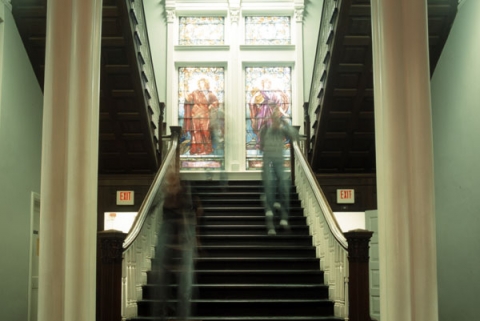Workshop on Regulation and Coordination: Pamela Foohey
God Forgives, Banks Don’t? Black Churches in Chapter 11
Associate Professor of Law, Indiana University Bloomington Maurer School of Law
More Information
About the Speaker
Professor Pamela Foohey’s research centers on bankruptcy, commercial law, and consumer law, with a current emphasis on how non-profit entities use and are affected by bankruptcy. Her most recent project is an empirical study of the reorganization of churches and other religious institutions under Chapter 11 of the Bankruptcy Code. Her work spanning individual and business bankruptcy, consumer law, and family law has appeared in leading law and peer-reviewed journals.
Professor Foohey joined the Indiana Law faculty in 2014 after two years as a visiting assistant professor at the University of Illinois College of Law. Prior to teaching, she clerked for the Honorable Thomas L. Ambro of the Third Circuit Court of Appeals, worked as an associate in the Bankruptcy and Financial Restructuring Group of Dorsey & Whitney LLP in Minneapolis, and clerked for the Honorable Peter J. Walsh of the Bankruptcy Court for the District of Delaware. Professor Foohey received a Bachelor of Science degree Summa cum Laude from New York University’s undergraduate Stern School of Business, where she majored in economics and finance, and J.D. cum Laude from Harvard Law School, from which she also received a post-graduate research fellowship.

